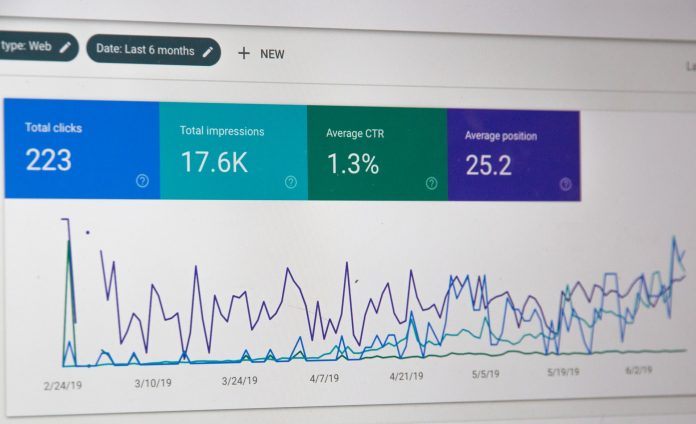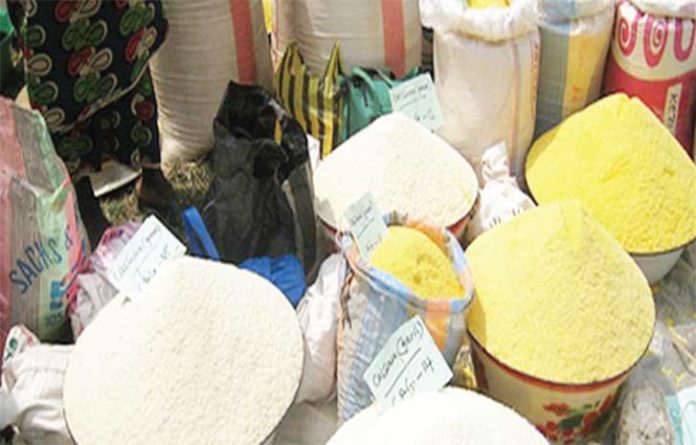Do you want to become a millionaire in Nigeria or anywhere you are on the continent of Africa? This post is for you.
The good thing about the wealth game is it’s positive-sum, not zero-sum. Your being a millionaire doesn’t disturb my ability to become one. We all can be rich. We all can be wealthy. We all can be millionaires and multimillionaires.
Millionaires and billionaires in this world own businesses and assets that generate income for them while they sleep, are on vacation, exercise, eat, work, and spend time with their families and loved ones.
Their income is not tied to time. They leverage other people’s time and money to get things done. They multiply their efforts quickly to get quick results.
One of the surest ways people become millionaires is by owning and running a profitable business. If you check the top ten richest people on the soil of Africa, you will see that they all own businesses.
Not all businesses can make you a millionaire actually, and this is why this post is written for you to discover the top ten businesses that can make you a millionaire in Nigeria and Africa.
Successful businesses have one thing in common: they provide solutions to people’s problems using leveraging products and services that the populace can afford to pay for.
Here are the top ten businesses that can make you a millionaire even a billionaire in Nigeria:
1. Hotel business
The hotel business can make you a millionaire even a multimillionaire in Nigeria. The hotel business is one of the surest businesses that generate revenue daily. And the leverage and opportunities to make so much money are huge. If you have the required resources to start the hotel business, you shouldn’t waste time on it.
There is one thing about the hospitality industry in Nigeria and Africa: the bar of excellence is low. The services of most hotels are nothing to write about. If your hotel is in a good location, accessible for customers, can be easily found, and you provide good and affordable service, success is guaranteed.
The revenue from one hotel can be used to build another one. One hotel can be used as collateral to get a loan from a bank to build another hotel or to expand the business and meet the demand of the customers. This is how some billionaires in Nigeria have more than 200 hotels in different locations across Nigeria. You can join the league too.
There was a time when a friend approached me to assist him to get a relatively affordable hotel for his staff who are coming to work in Lagos.
There is this new hotel I know. A room is N10,000 per night. Small rooms though. The hotel has 64 rooms. My mind was at peace knowing that there were enough rooms for customers and can never be fully booked. But I was wrong with my assumption.
I went to the hotel in the evening to book three rooms. I was shocked to hear that all the rooms are fully booked by customers. I asked again, “But you have 64 rooms?” The receptionist said all are filled. Surprised. I asked if there is a possibility of getting one the following day. But I was told twenty customers have booked 20 rooms ahead for the following day– that’s one-third of the total number of rooms.
If you do the maths, you can have an idea of how much this one hotel will be making monthly. And the owner has other hotels in different locations. This is serious money.
If you don’t have the huge capital to start the hotel business, you can start with whatever you have. Small hotels in a good location that provide only short time lodging rake in money, too. You can start small and expand later on.
Another way of starting the business is to look for a hotel in a good location but with bad management and maintenance. This usually happens to inherited hotels. The family or kids of the late owner don’t usually run them well.
You can make an offer that you will take over the hotel and be paying them rent annually. They don’t have to bother about the hotel business. You will do some renovations, and position the hotel well to attract customers. They will get their money as agreed.
Ensure everything is written and agreed upon. And all the parties involved should sign the documents. That’s all. If you have good management skills, you will be recording profits every year.
2. E-commerce business
E-commerce is a kind of business that involves the buying and selling of goods or services over the Internet.
It is a type of retailing that provides for distance transactions of goods with customers, without the need to maintain a physical business location.
Customers shop directly on the website of the business from wherever they are to buy their desired products, and the business delivers the products to their delivery address.
In Nigeria and Africa, people are getting comfortable with shopping online without needing to visit the physical location of the business. Even, these days brick-and-mortar businesses are coming online to sell too.
Konga, Jumia, and Amazon are the best examples of thriving and profitable e-commerce businesses. The owners of these companies are billionaires and multi-billionaires.
In Nigeria and other African countries, millions of people shop daily on e-commerce platforms, and they love it because it involves no stress.
And the good thing about the market is: it’s unsaturated to date. If you want to become a millionaire in Nigeria or anywhere you are in Africa, you can join the league.
Here are the most popular categories for online purchases in Nigeria as of 2023: clothing, shoes, bags & accessories, cosmetics & body care, consumer electronics, food & beverages, health products, household appliances, books, toys & baby products, furniture & household goods, stationery & hobby supplies, DIY& garden products.
Most successful e-commerce companies started by selling a category of product and later expand to become multicategories. Amazon started with books only. Look at Amazon today. Amazon is not just an e-commerce business again, but a technology company that provides cloud services for businesses.
3. Internet service providing business
The population of Africans and Nigerians connecting to the Internet are increasing rapidly. People connect to the Internet for different reasons: education, entertainment, social, work, business, etc.
Millions of people need a good Internet connection to surf the web and browse the Internet. Africans pay more for Internet plans than other continents. If you can provide unlimited Internet service for people at affordable rates, in no time you will become a millionaire.
If you research how much Telecom companies make on Internet data sales every month in Nigeria, you will discover how huge the market is. And most of them provide bad services.
And according to my findings, Internet Service providers run away from customers because they cannot meet their demand for services. Are you surprised? They simply run away because they can’t meet up with the needs of customers, and as a result, they avoid connecting them.
4. Transportation business
If you want to become a millionaire in Nigeria and Africa, the transportation business is worth looking into.
We spend heavily on food, rent and transportation daily to move from one place to another. We buy goods and get them delivered using transport companies’ services.
Logistics alone is huge, and still a mess because the players don’t meet up with the demand and always disappoint.
You can start a logistics company today to provide better services and leverage the use of technology to serve customers better than the current players.
The transportation business is huge. Logistics is not the only profitable niche to focus on. Everybody cannot own a car, but almost everybody moves from one place to another. They need taxi/bus services to get to their destination.
Here is an idea: you can start a transport company to provide cheaper, more flexible and more convenient transport services to working-class people in cities. You pick them up at some point in the morning to work and drop them off in the evening. This business model is highly scalable and you can generate millions in profits.
You can also look into giving out buses and cars on hire purchases to individuals who cannot afford to pay for cars outrightly. You can set up a company to provide this service to people.
You carry out your research. You buy the car or bus of their choice for them. You sign an agreement on weekly payment terms. You include penalties so they can take the payment seriously.
How much will you give the car out? It depends on the price of the car and the agreement with the client. Some companies and individuals do add almost 100% to the actual cost of the car.
There are numerous millionaires in the transportation business in Nigeria and Africa at large. You can join the league by starting the journey now.
5. Food and beverages business
The food sector takes about 40% of the total economic activities in Nigeria. Households spend about 50% of their income on food, according to the Nigerian Bureau of Statistics. Some of the richest people in Nigeria and on the continent of Africa own food and beverage companies.
Almost 200 million people are living in Nigeria. They need food and drinks daily for nourishment. As broke as many appear, still they eat at least once daily.
The size of the food and drinks market in Lagos is roughly N1.1 trillion. There are different players in the market. Every business takes a share of the market and makes profits.
You can start a food restaurant. You can start supplying raw foodstuffs to restaurants. How about the selling of affordable, processed and clean beef? How about a meal and soup delivery business for busy individuals? You can become a major distributor for food companies. How about opening a flour depot? You can also open a soft drink depot. How about buying foodstuffs from farms and sell in the city? You can open a foodstuff store in a residential area. You can be a major distributor of an energy drink brand.
6. Education Business
The education sector is a huge one in Nigeria. It is estimated that 60 per cent of Nigeria’s population is under the age of 25, making it the youngest country in Africa. As this demographic continues to grow, so too does the demand for consumer goods, services, and retail offerings–which education is among.
Nigerian parents value and know the importance of education. They send their kids to the best schools they can afford. They send their kids to the best training centres for skills acquisition. They register them at tutorial centres to ace their exams.
And also, the major spendings of Nigerian parents are on food, rent, and education. Schools make millions in Nigeria. It’s evident in the springing up of private primary, secondary, and tertiary schools. The best schools you can find in Nigeria and Africa are owned by millionaires.
The education sector is huge. You can decide on the area you want to focus on. Be it school, training place or tutorial centre. You hire teachers, instructors and managers to run the place for you.
7. Real estate business
The real estate business is a multimillionaire, billionaires business. Real estate is money at rest. The real estate business can make you a millionaire in Nigeria and Africa. Think of the most valuable buildings, and estates. They are all owned by multimillionaires and billionaires in the world.
The real estate business can fetch you fortunes you can’t ever imagine. There are several ways people make money in the business. People buy virgin hectares of land, patiently wait for its appreciation then start selling it plot by plot to individuals and companies.
There are also property development opportunities in the business. You help landlords/landladies to develop their properties. You share the apartments or buildings according to your agreed terms and conditions. You sell or lease or rent out your share.
People who flip properties too make millions. They buy properties from desperate sellers and wait for some time to resell them. Property flippers buy undervalued properties and resell them to buyers.
Millionaires also make money from long leases. The owners lease their properties to them for years. They sign an agreement. They make the payment and rent them out to people to get rents annually. A long lease is usually 18 to 25 years.
The real estate business can make you a millionaire in Nigeria and Africa
8. Information technology business
The opportunities to make millions from Information Technology are not fully tapped because numerous problems are waiting to be solved with technology for people. There are many opportunities to build digital solutions to everyday problems.
If you are passionate about Information technology, you can start a business in the space and make millions. And the beautiful thing about I.T. business is scaling is fast and less costly unlike other products and service-based businesses. There are leverage opportunities to scale the business fast.
What solution can you offer? What problems do you want to solve? Ulesson is solving educational problems. Okra is solving payment processing problems. WhoGoHost is providing web and cloud hosting services. Many tech companies are meeting the demands of people daily.
All these aforementioned companies make millions. One thing about the Internet technology business is quietness. You can be making your millions without noise.
9. Agricultural business
Don’t look down on agriculture because it’s a multibillion-naira business in Nigeria. Farmers save lives. They provide us with food and raw materials for our industries. They generate millions from sales of their farm produce.
The agricultural business is huge and has many chains. You can become a millionaire if you go into agricultural business.
If you don’t want to farm yourself, you can focus on the processing. You can sell farm inputs. You can provide storage facilities for farmers. You can offer affordable logistics services. You can go into agro exports.
There are many lucrative agricultural business ideas. Here are some of them you can try out if you want to become a millionaire farmer in Nigeria and Africa: poultry farming, fish farming, tree farming, cassava farming, rabbit farming, goat farming, cattle farming, vegetable farming, beekeeping, mushroom farming, grasscutter farming, livestock feed production, palm oil processing, organic fertilizer production, farm machines repair, servicing and sales, etc.
Bill Gates is the biggest private farmland owner in the United States. Nigeria billionaire Cosmas Maduka have 5000 hectares of farmland in his home state, Anambra.
In Nigeria, there is a cassava farmer who makes millions from his cassava farms. Same as many soya beans farmers.
Agricultural business can surely make you a millionaire in Nigeria and Africa.
10. Construction materials business
Here and there, estates are springing up. Massive mansions are being erected. You won’t travel some kilometres without sighting construction work going on. You will see trucks transporting construction materials. You see guys offloading tons of cement from delivery trucks. If you visit markets, you will see people queueing up to buy one material or the other.
Construction material business can make you millions in Nigeria and Africa. The fastest way of becoming a millionaire in this business is to be on the top of supply chains. You can be a major distributor of companies that produce materials. You can own trucks and use them to load granite from quarries and supply them to your customers.
Wrapping things up
You have made it to the end of the exhaustive list of the top ten businesses that can make you a millionaire in Nigeria and Africa. All of them are time-proven. One of the best ways of going into any of them is to look at the unsatisfied need of the market and provide affordable solutions.
Are you ready to start now?
Don’t hesitate to reach out to me if you need assistance with starting, or growing any business or side hustle. I would like to hear from you. You can leave comments below.
Please, subscribe to our YouTube channel, like our Facebook page, follow us on Twitter, join our WhatsApp group, and subscribe to our Telegram channel to stay updated.
Do you want to talk to me directly? Click here to send a message to me on WhatsApp.
Also, please, don’t forget to click on the social media icons below to share this post with people.
Start now!



















